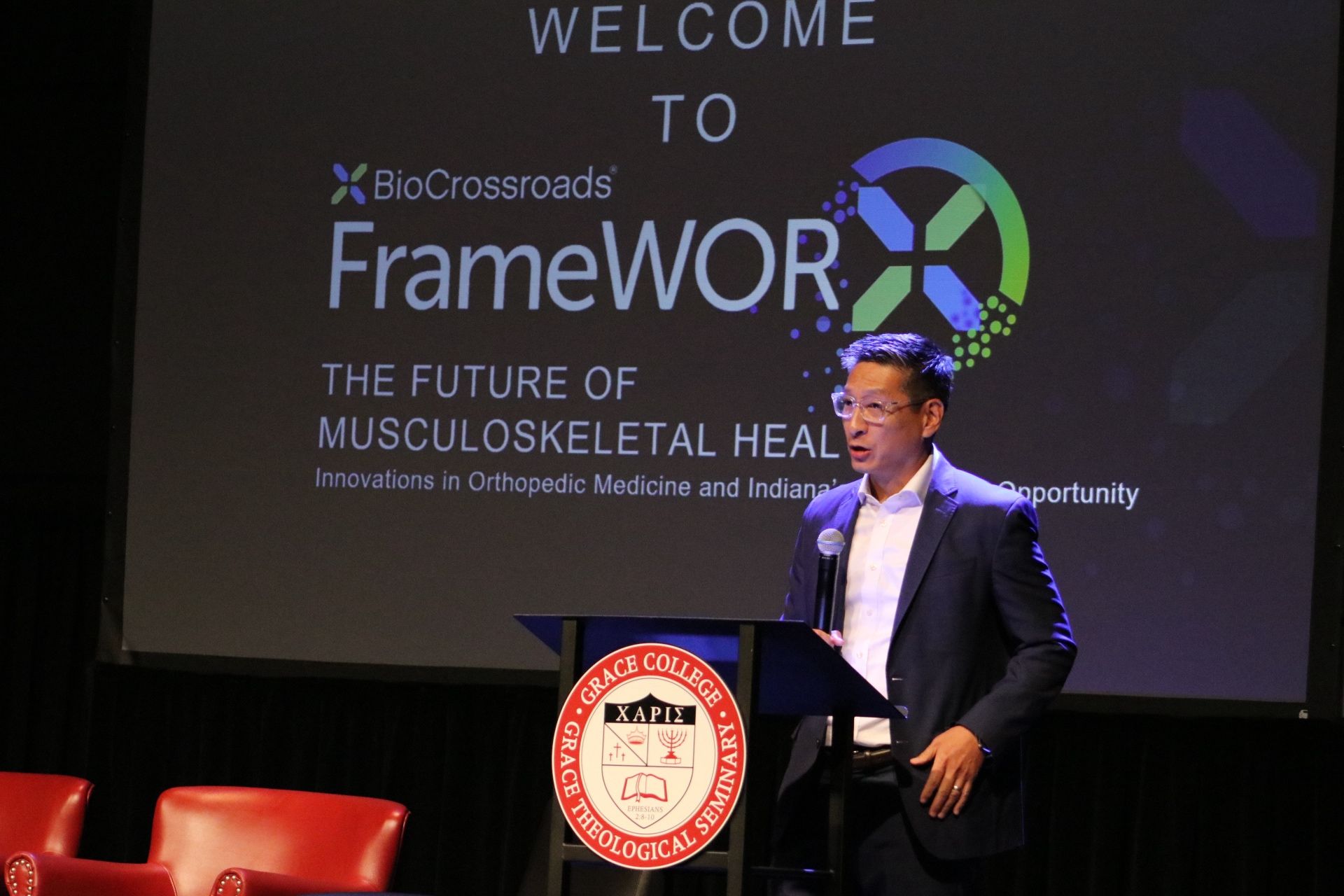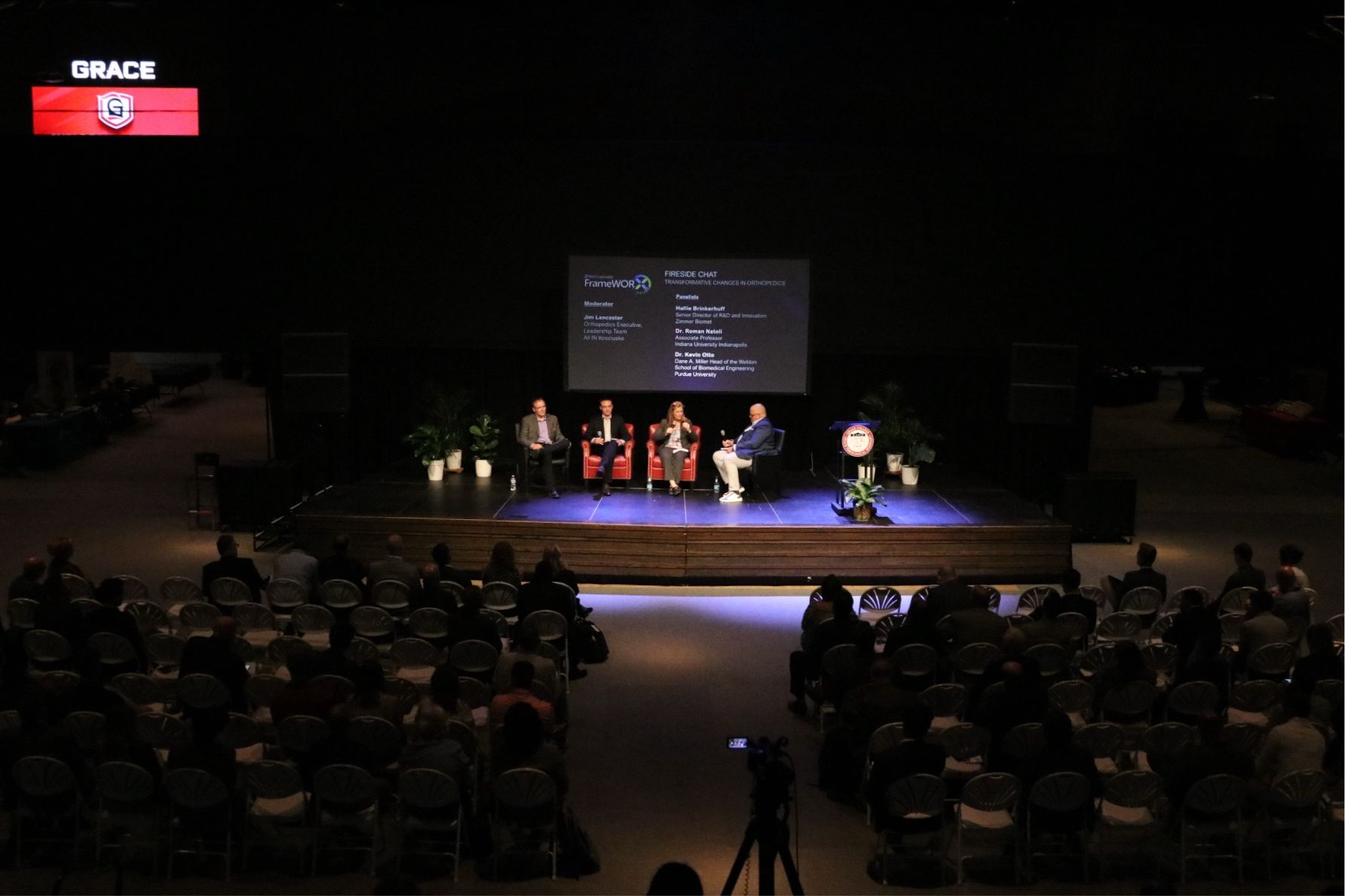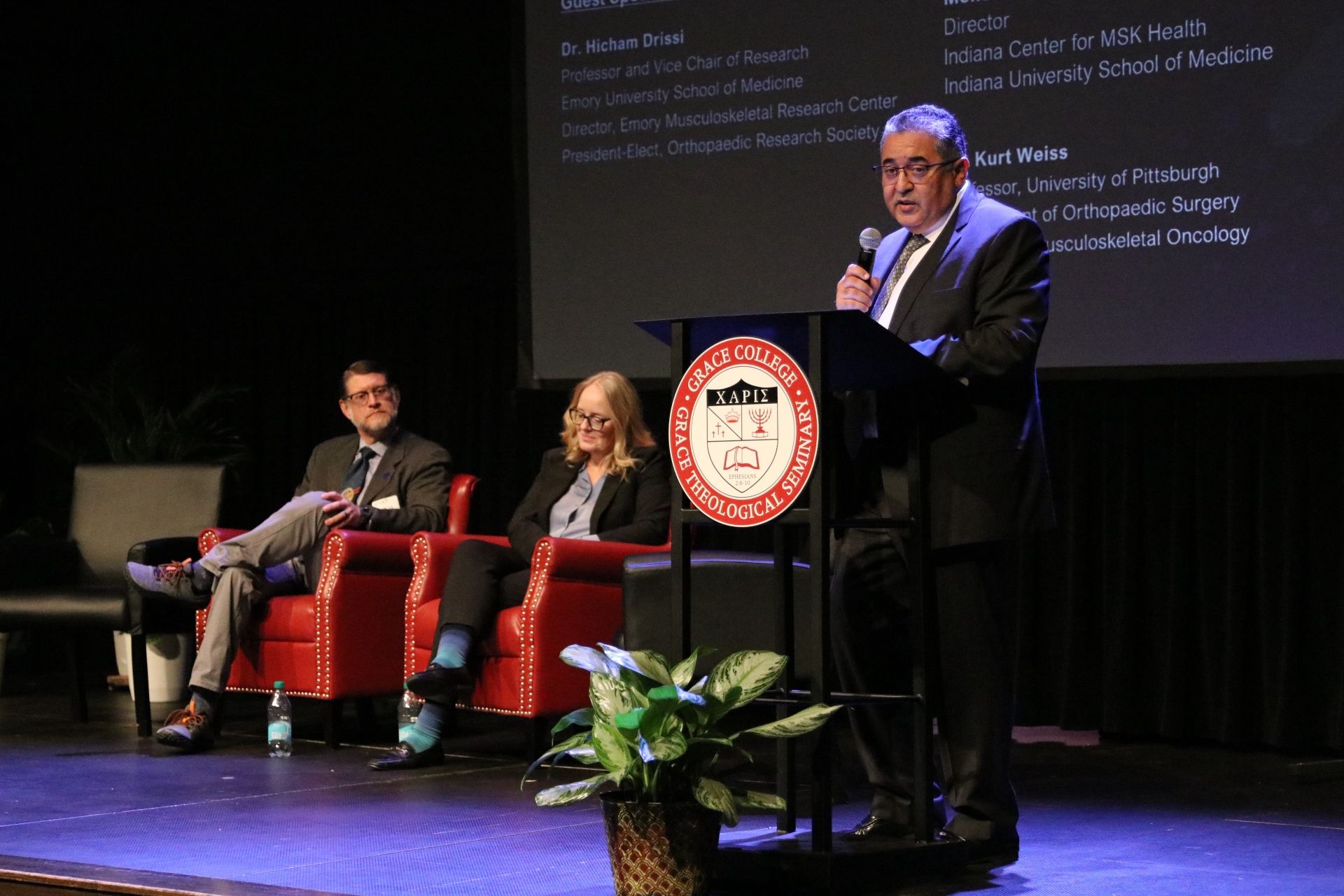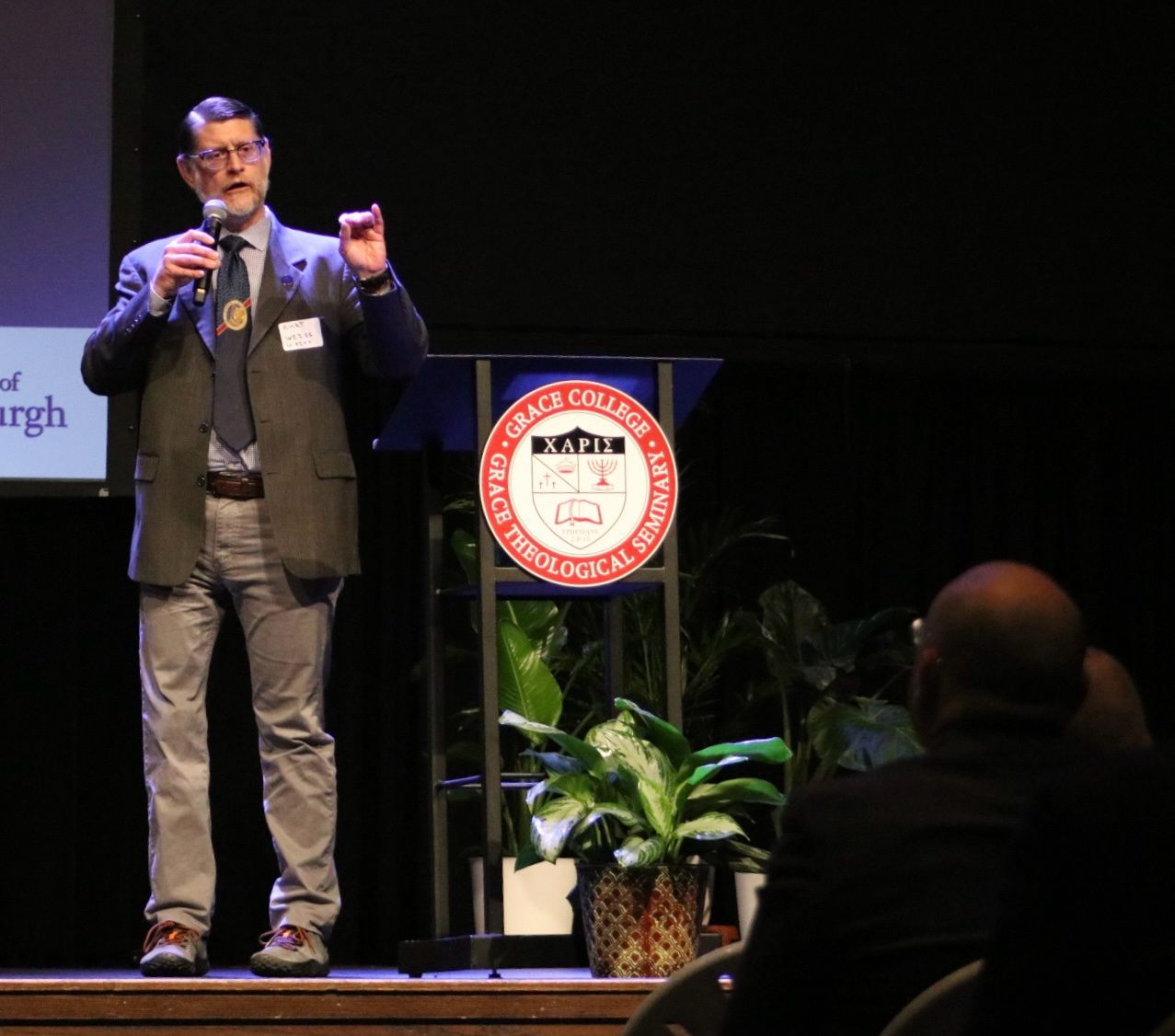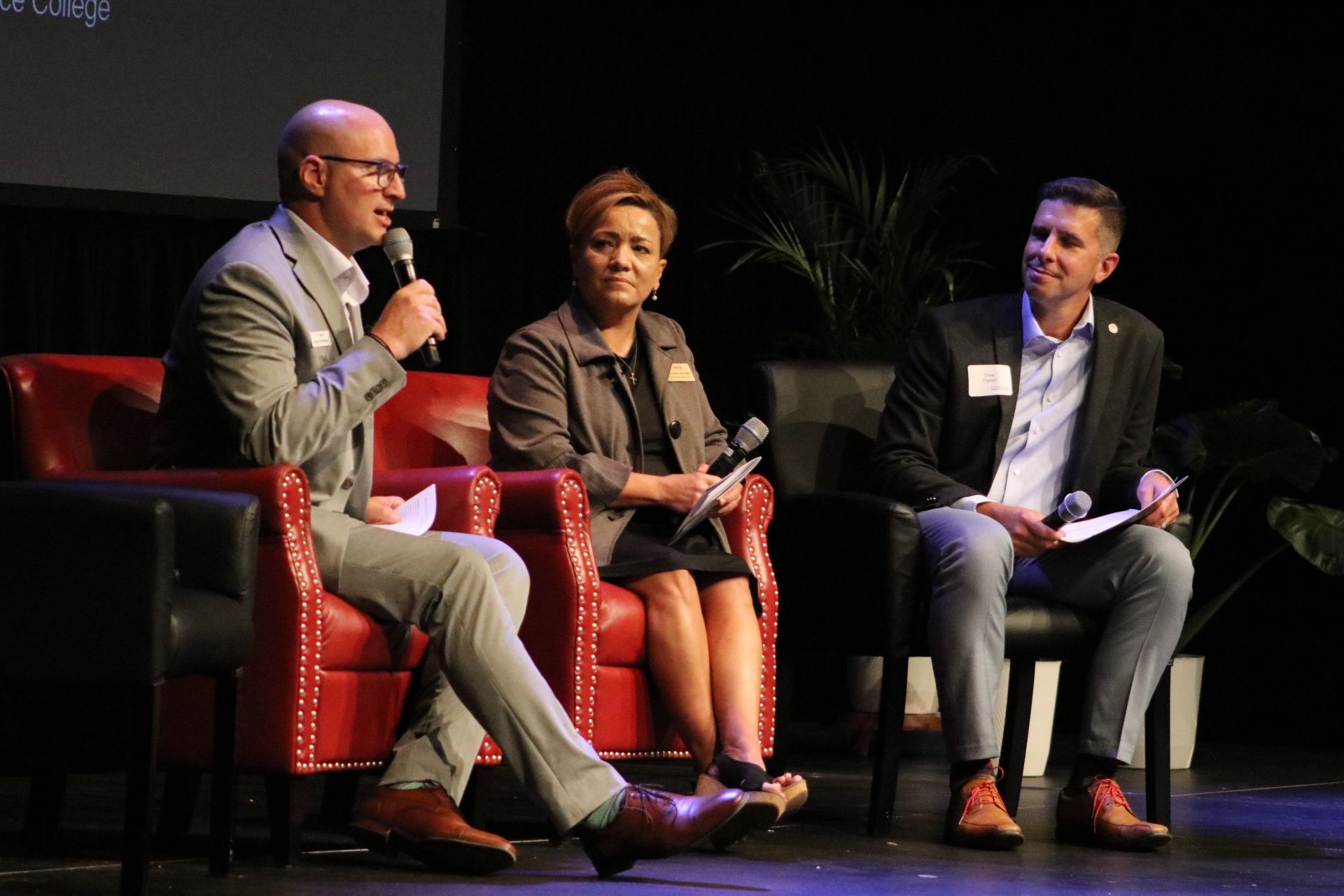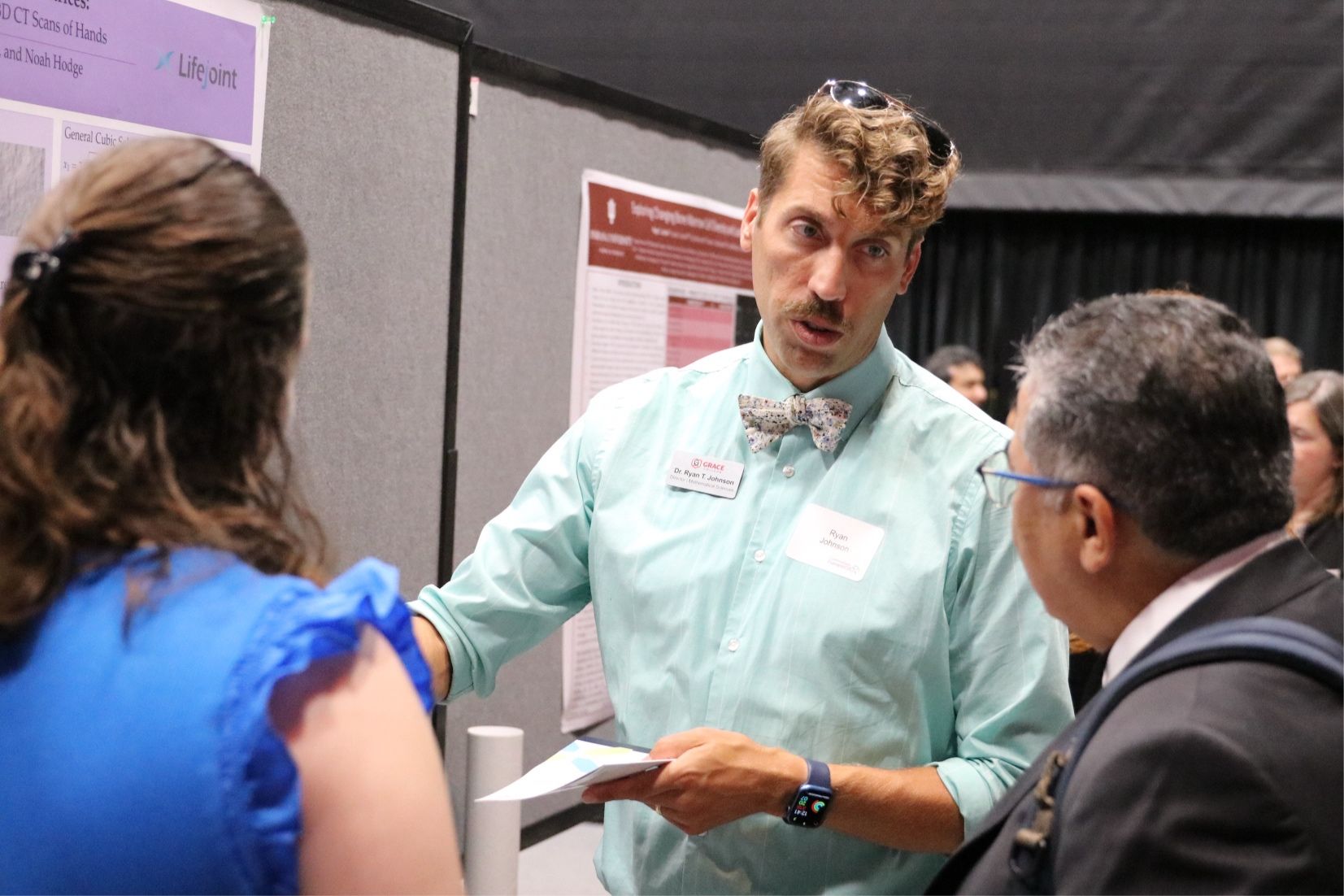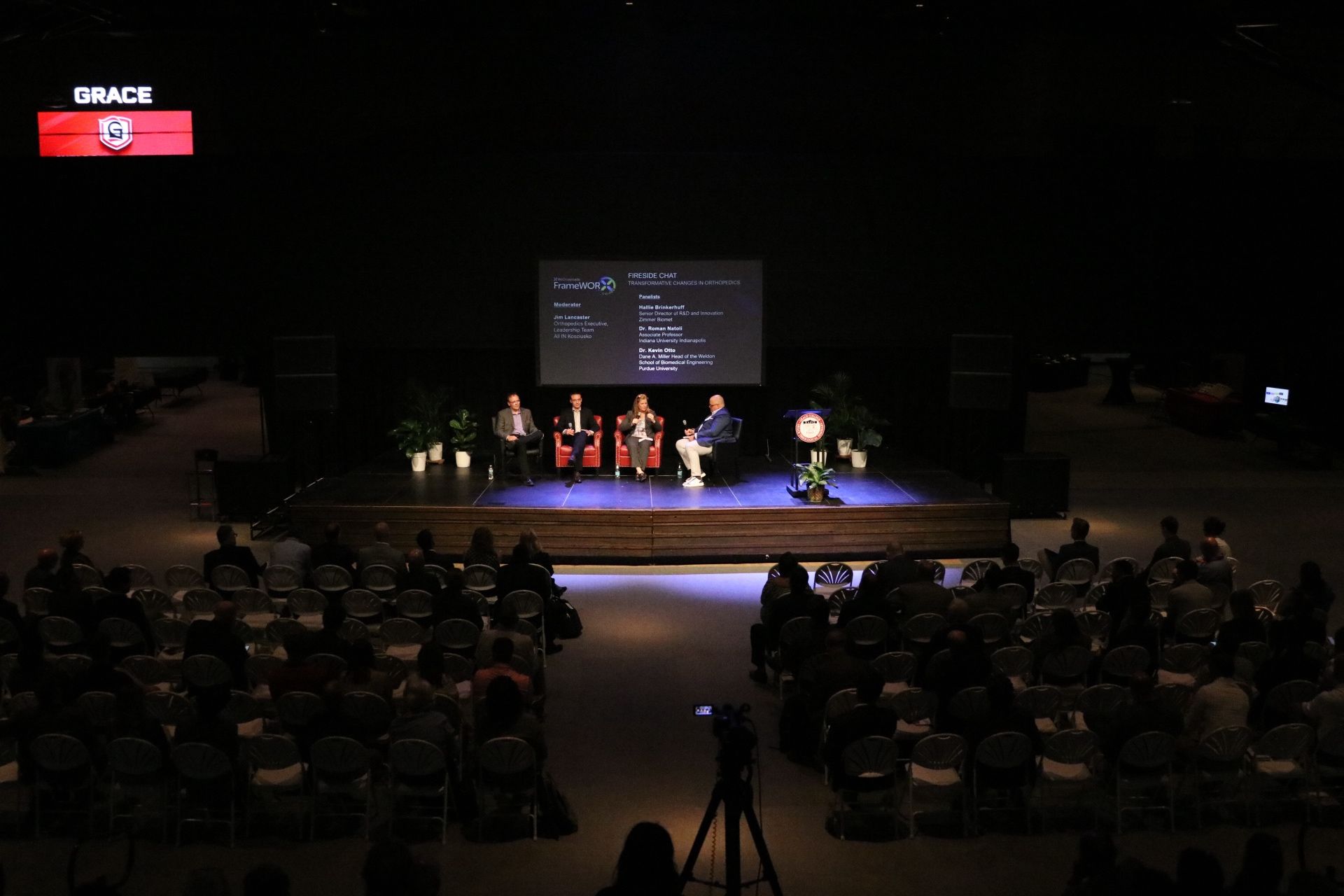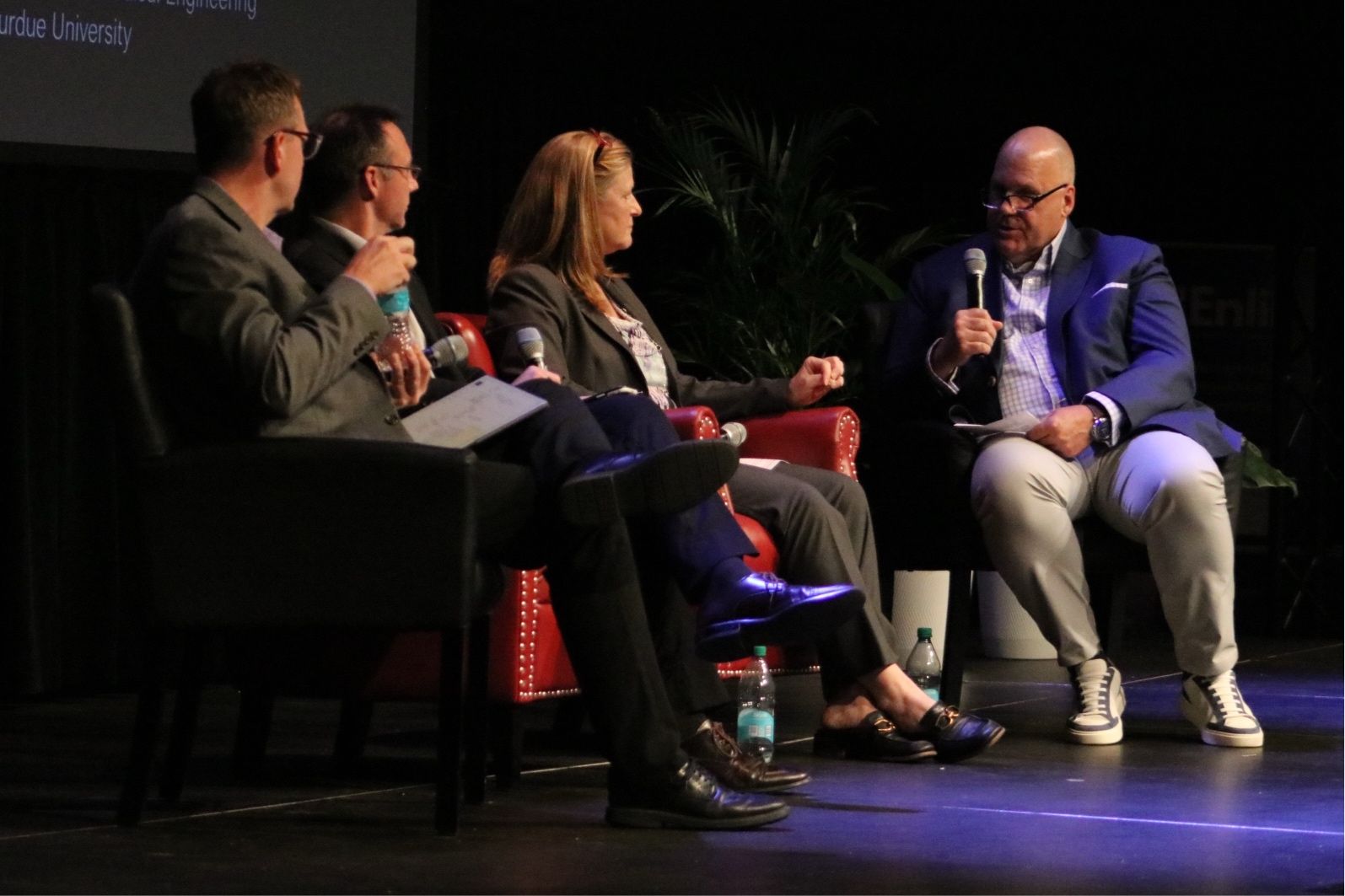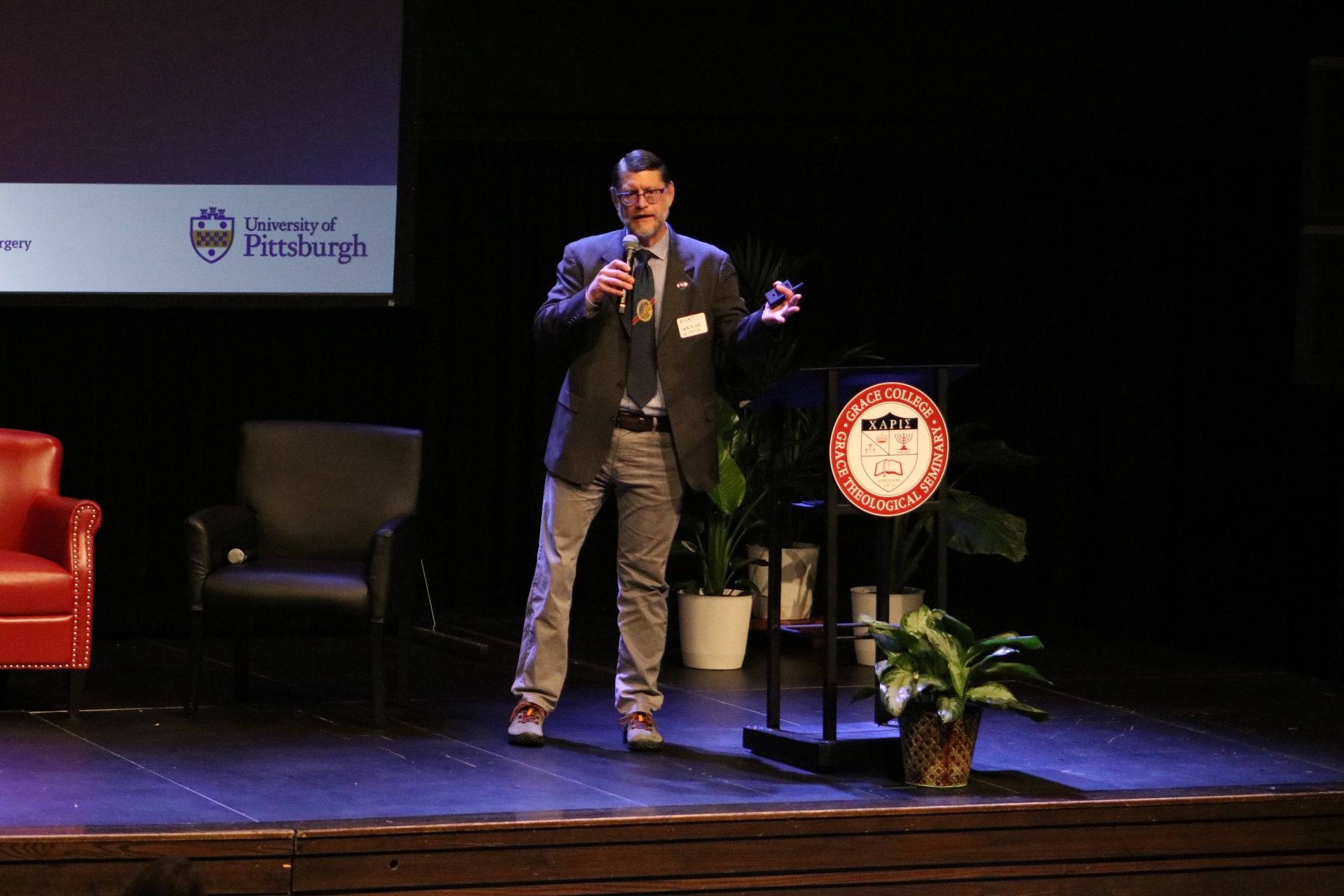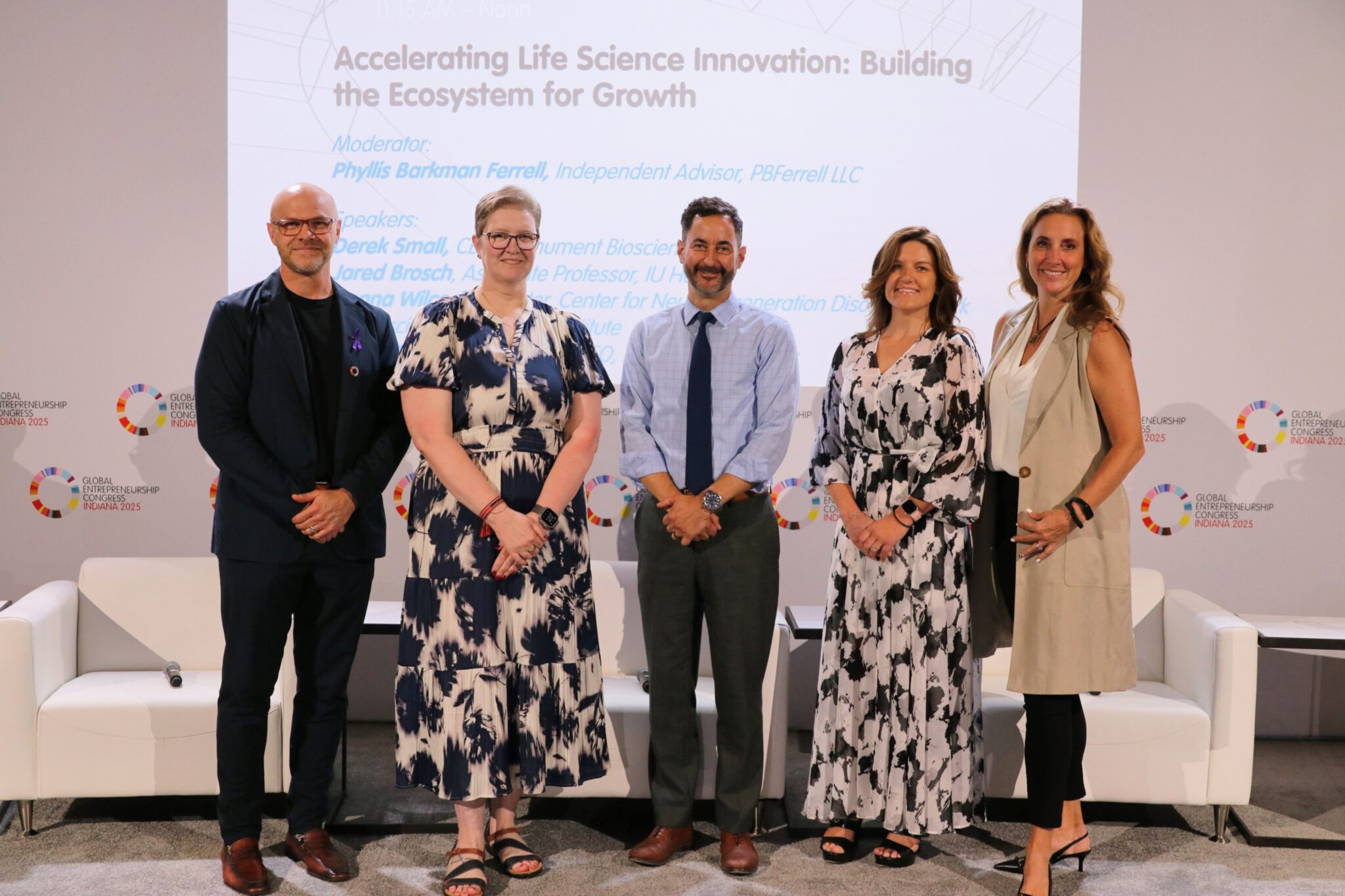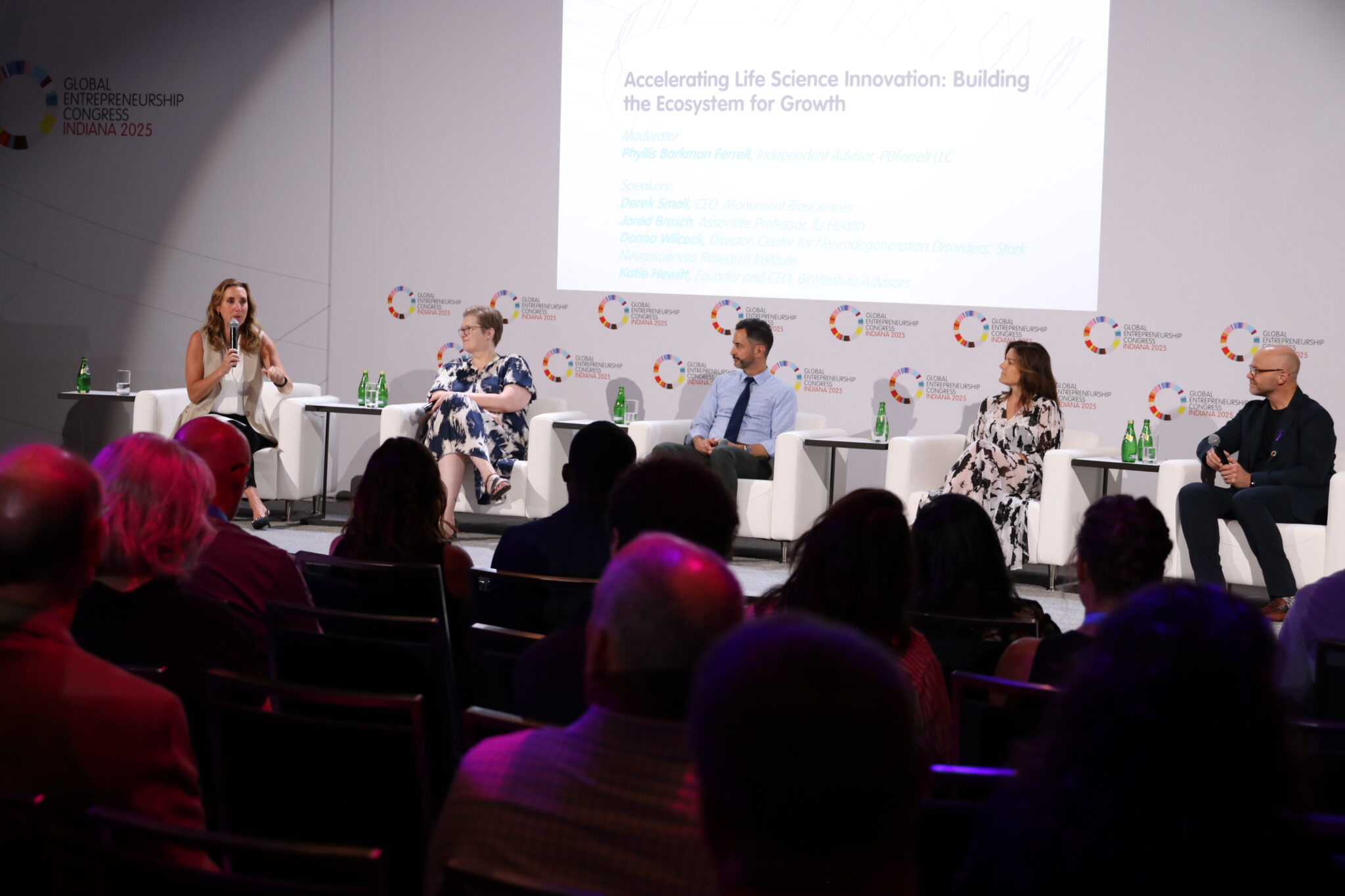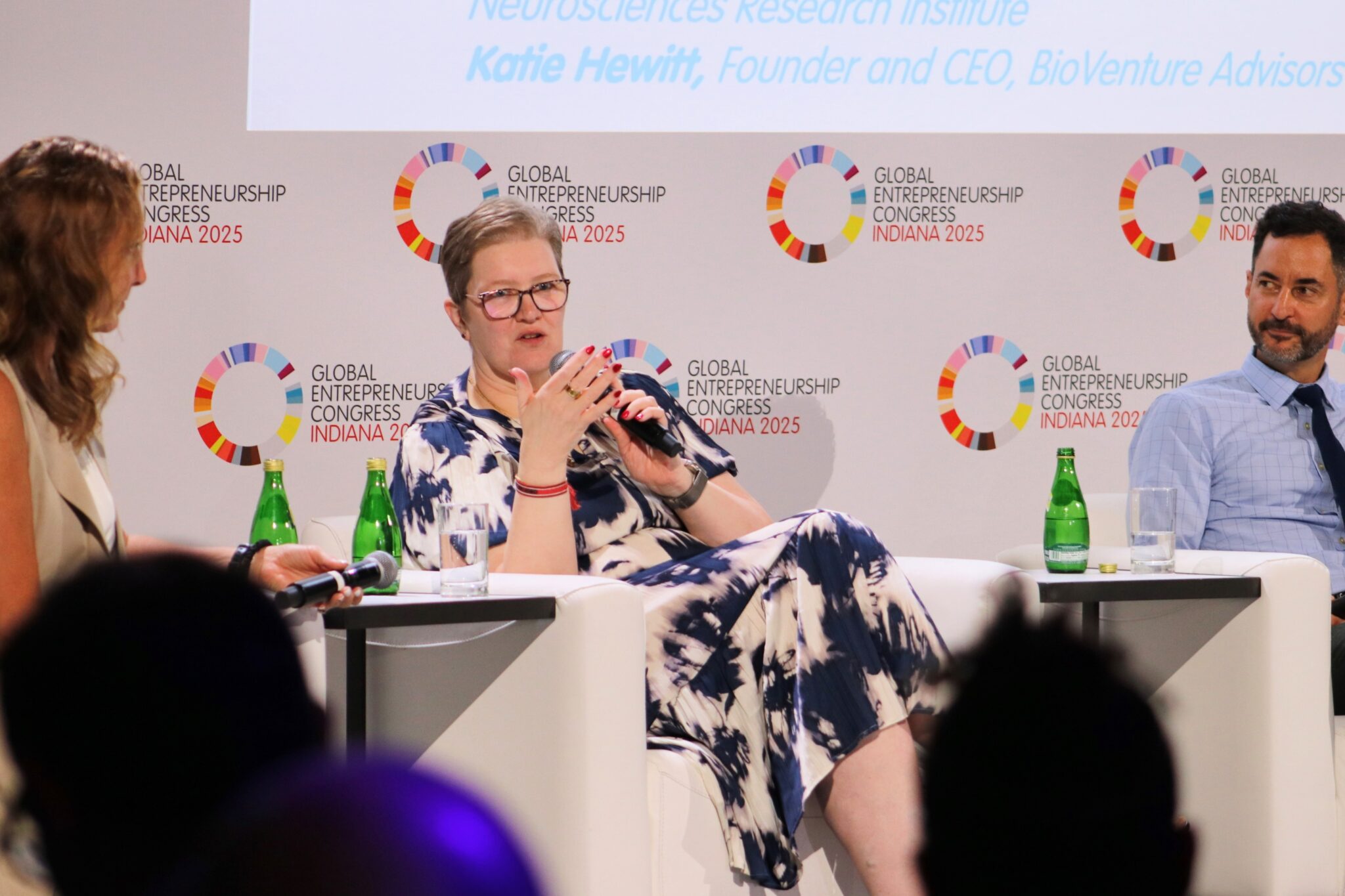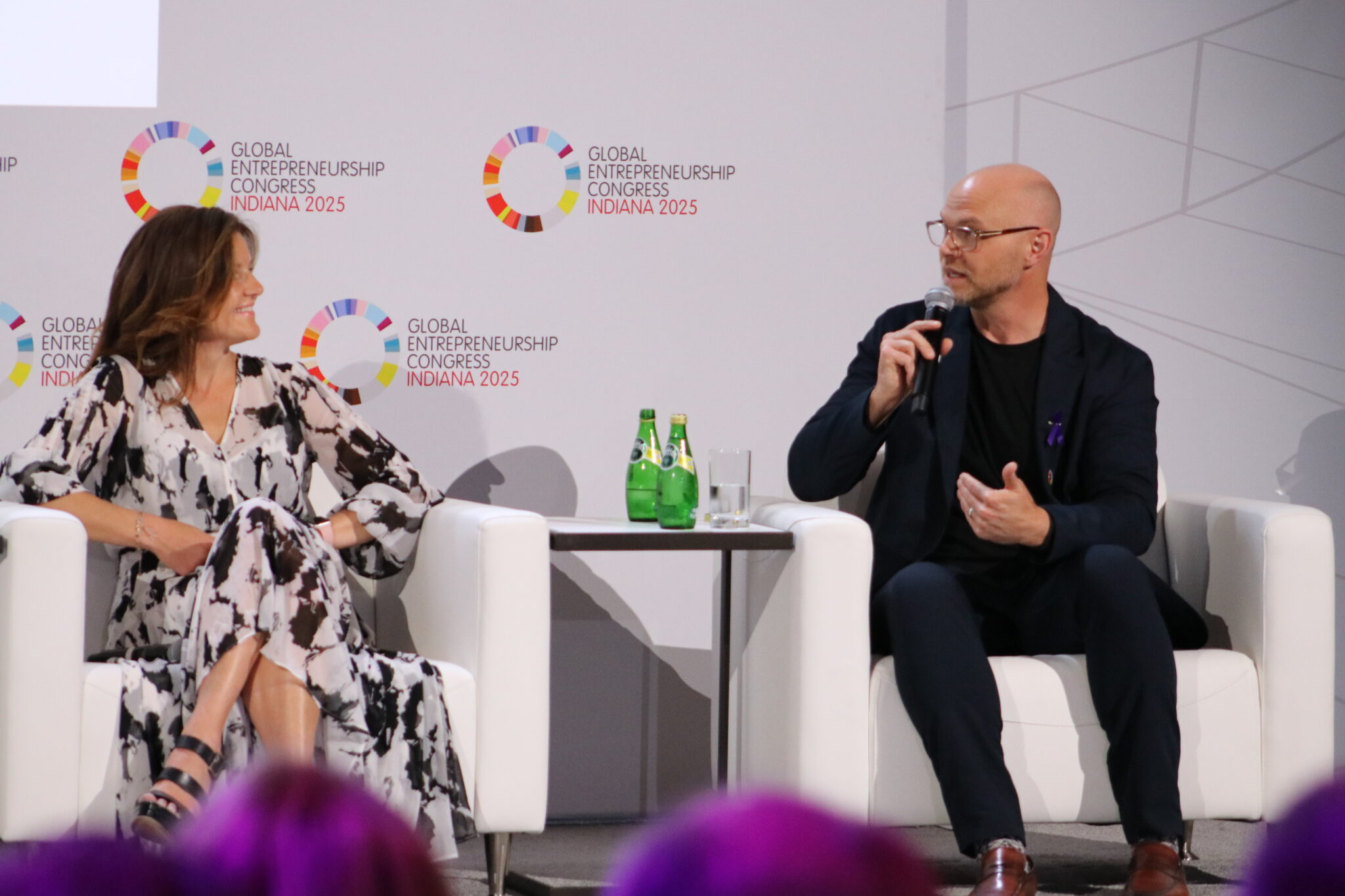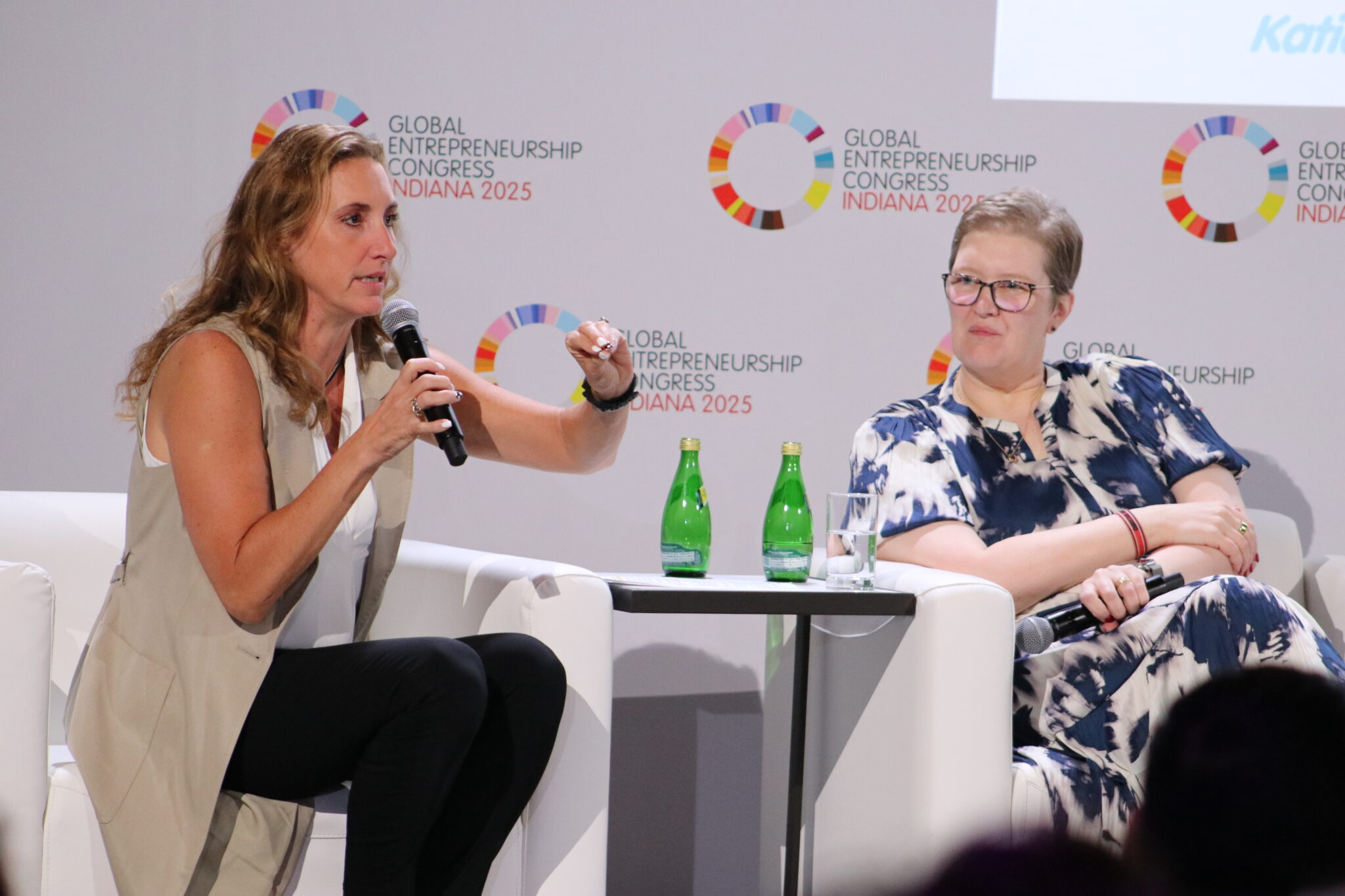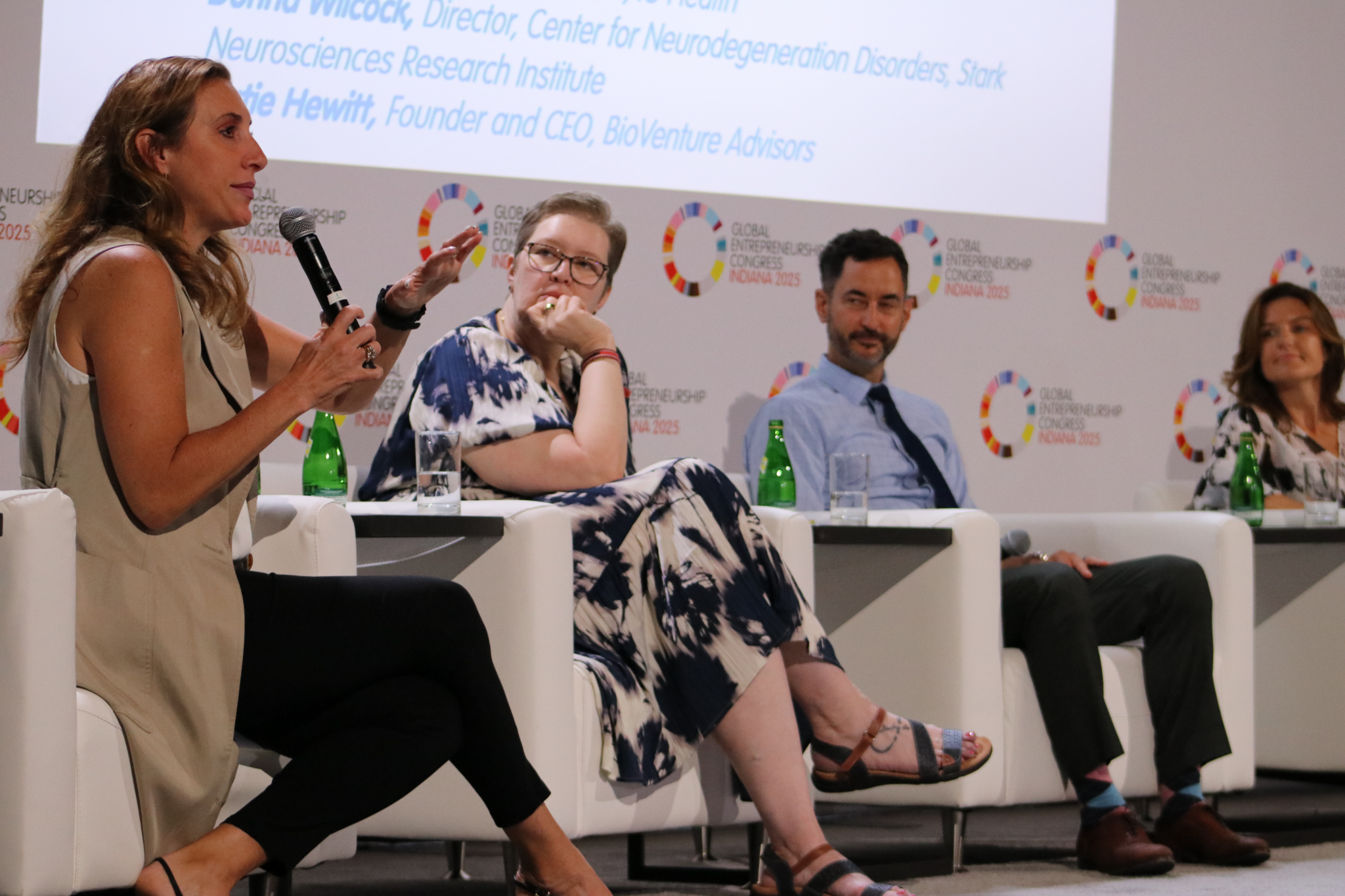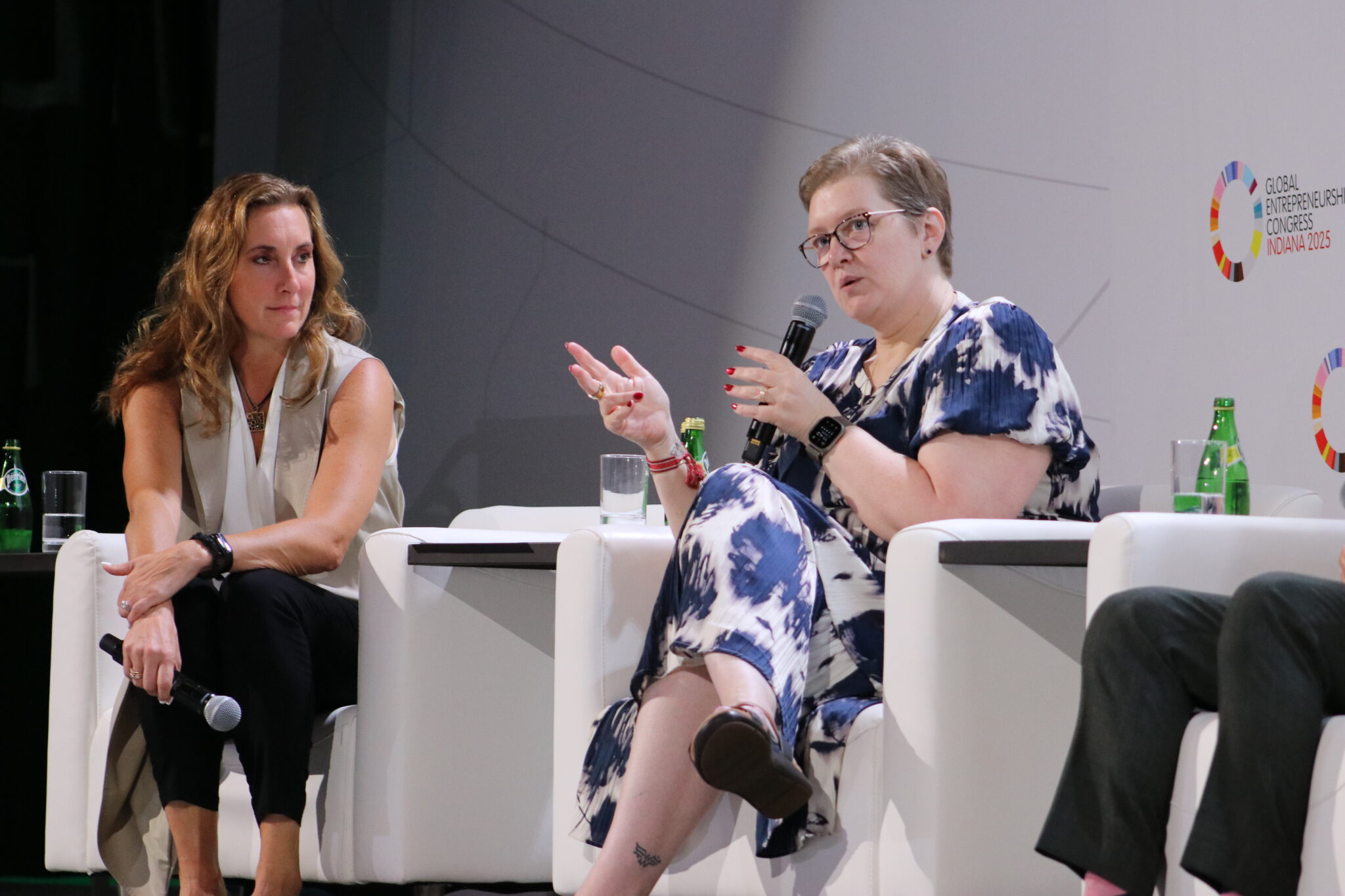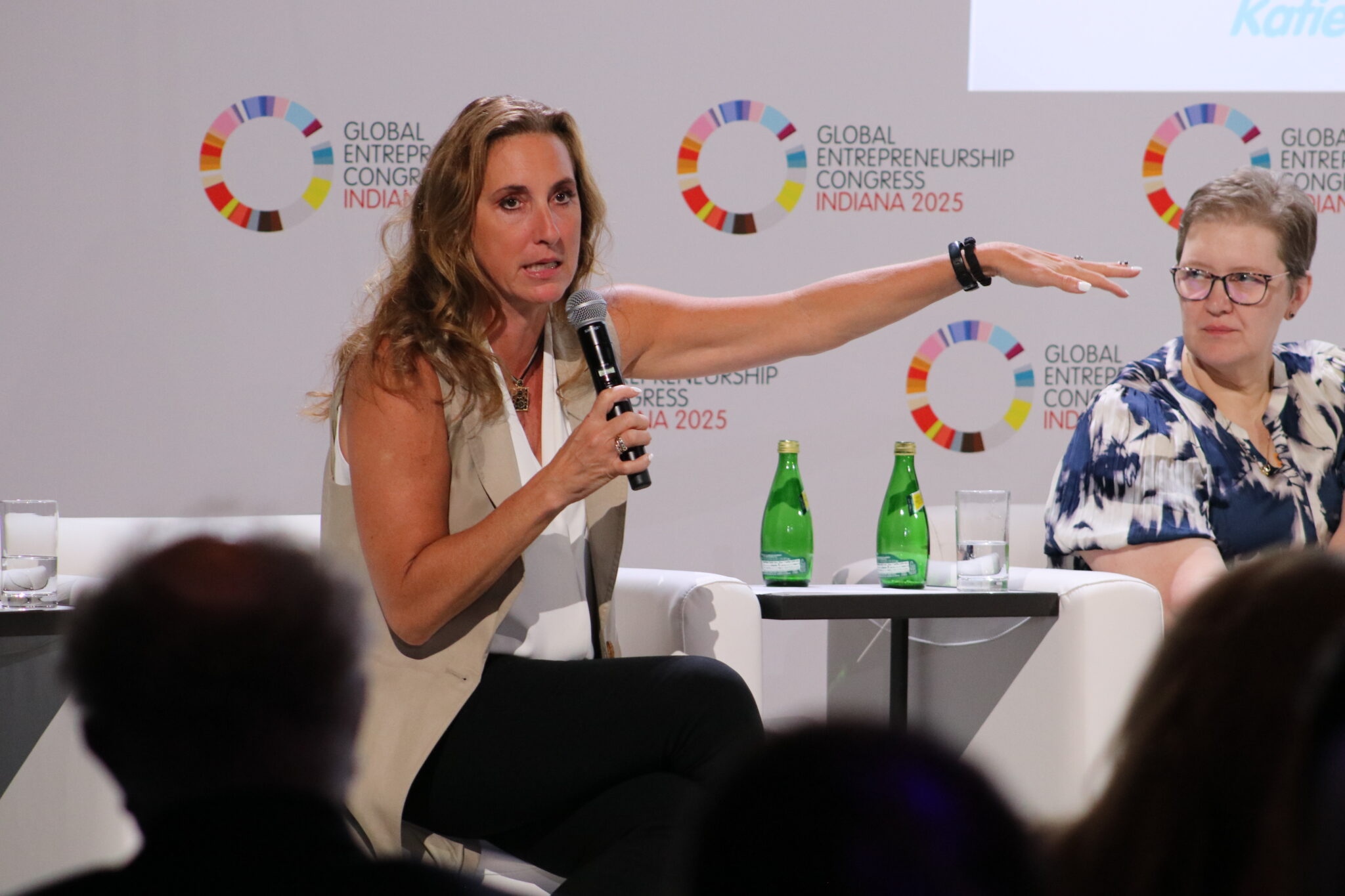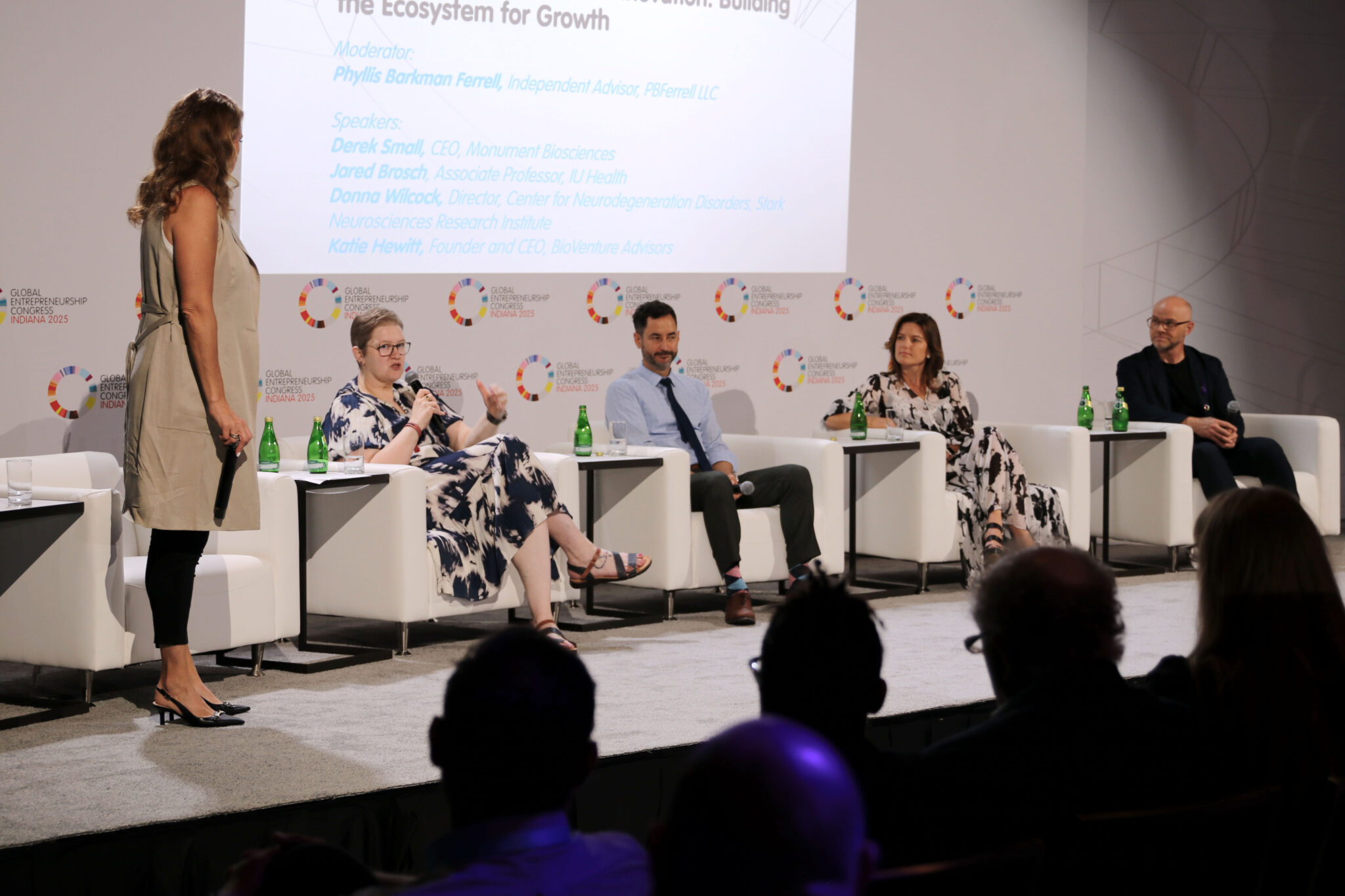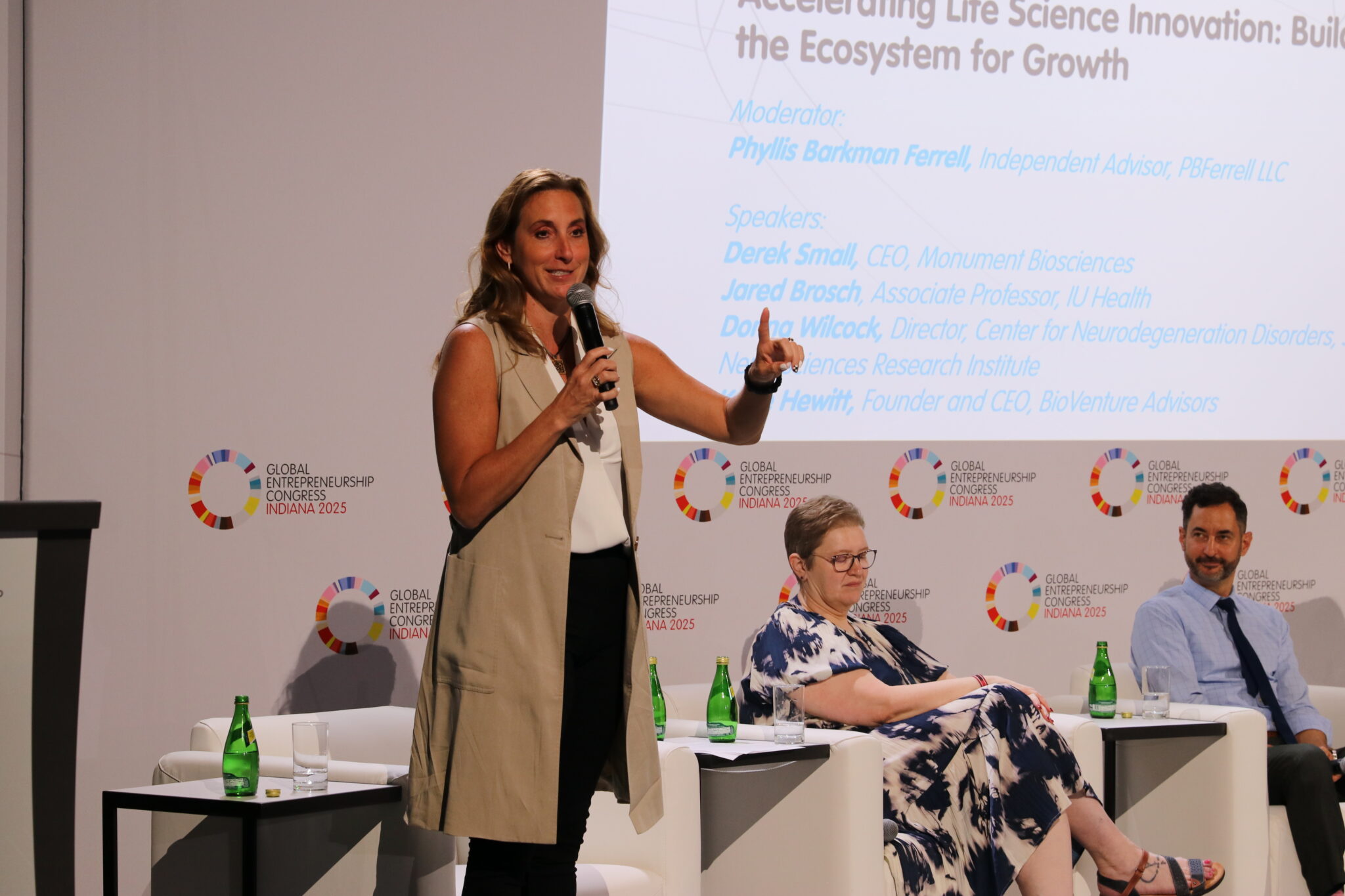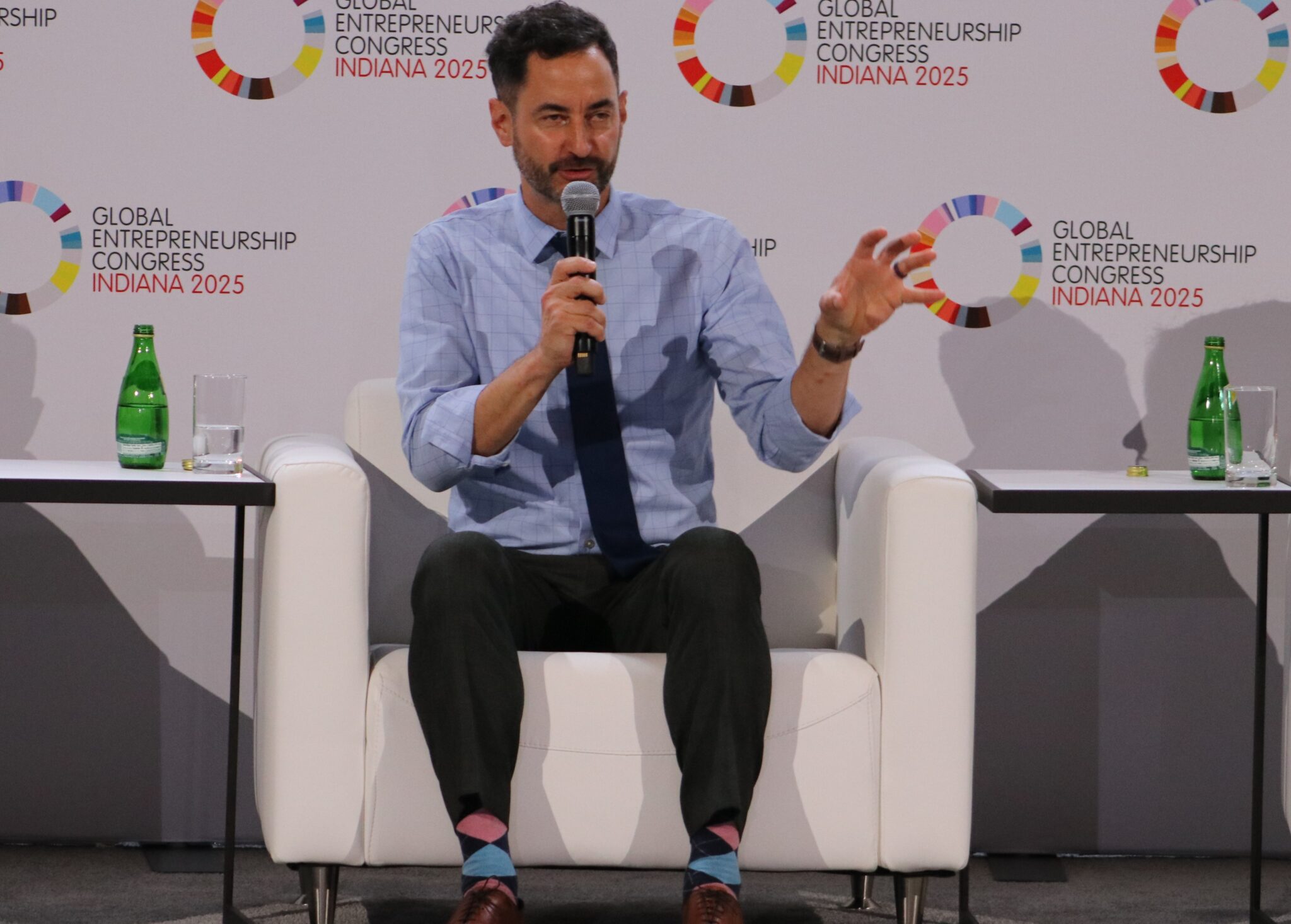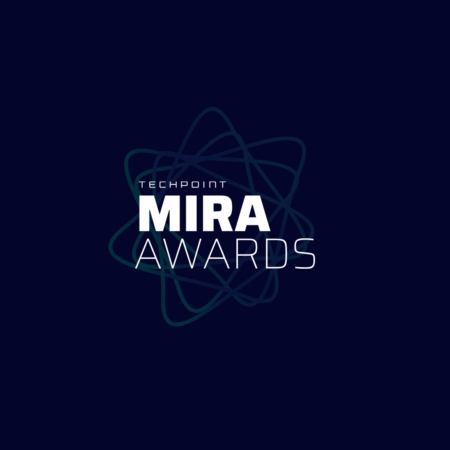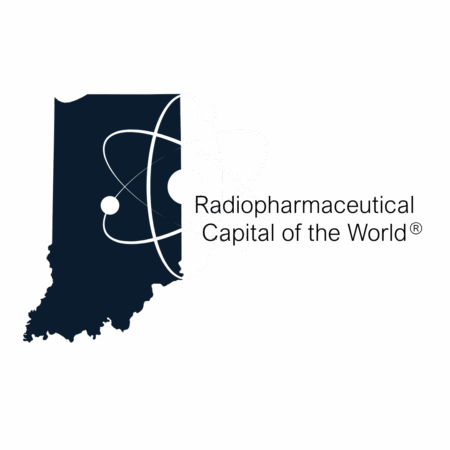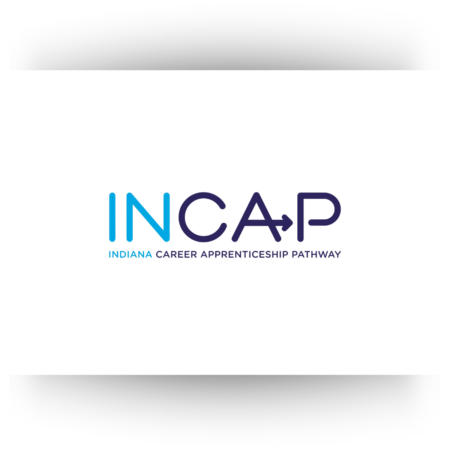WEST LAFAYETTE, Ind. — Responding to the growing demand in Indiana and across the country for skilled workers in the burgeoning field of theranostics — the use of diagnostic and therapeutic radiopharmaceutical drug products for the treatment of various types of cancer — Purdue University will soon launch the nation’s first graduate degree directly focused on radiopharmaceutical manufacturing.
Underscoring that commitment, Purdue will partner with Indianapolis-based pharmaceutical manufacturing leader SpectronRx to build a dedicated radiopharmaceutical manufacturing training facility at company headquarters, in close proximity to several leading radiopharmaceutical manufacturers who have established production facilities in the Indianapolis area. This facility will be used to train students across various educational levels and disciplines, providing a facility for hands-on instruction for a broad spectrum of future training programs.
Purdue’s new Master of Science in radiopharmaceutical manufacturing will be offered, starting in the spring 2026 semester, in a hybrid format with most courses completed online. Students will be required to complete an in-person capstone course in a radiopharmaceutical manufacturing setting to complete the degree and will be able to choose one of several hands-on lab courses that are being developed for the new facility as elective opportunities.
“Purdue has a long history in the nuclear pharmacy space, having programs in existence through the College of Pharmacy since 1959,” said Eric Barker, Purdue’s vice president for health affairs and the Jeannie and Jim Chaney Dean of Pharmacy. “With this projected growth in the radiopharmaceutical industry, Purdue is well positioned — both academically and geographically — to strengthen the workforce pipeline by training future professionals and advancing the education of those already working in the field.”
Purdue has the nation’s largest nuclear pharmacy program, and currently offers six elective courses in that field, while also serving as the sole provider of continuing education activities that can be used by Board Certified Nuclear Pharmacists to maintain certification. The program is expanding to meet an increasing workforce demand in nuclear pharmacy as well as radiopharmaceutical manufacturing.
Indiana is home to 15 nuclear medicine companies in various stages of growth and development, primarily in the Indianapolis area. The rapidly growing nuclear medicine market is already a $6 billion industry in the U.S. and is projected to more than triple over the next seven years.
SpectronRx joins a growing list of central Indiana companies with which Purdue has cultivated relationships to develop academic and workforce training opportunities for students. These collaborations span sectors like biosciences, tech innovation, pharmaceuticals and engineering, aligning student preparation with employer needs and underscoring a central pillar of Purdue’s strategy for Indianapolis. Rather than a single hub, Purdue is weaving into the fabric of the city’s innovation and industry corridors, expanding from downtown all the way to SpectronRx’s headquarters on the northwest side of Indianapolis.
“The radiopharmaceutical manufacturing program sets another example of integrating with Indianapolis-based industry partners to provide unique real-world experiences and advanced training,” said David Umulis, Purdue’s senior vice provost for Indianapolis. “Whether it’s through co-ops, internships or programs in location, Purdue’s growth in Indianapolis is providing the workforce to advance Indiana’s economy and high-tech ecosystem.”
SpectronRx will be one of 10 physical locations in the capital city where Purdue has established shared spaces with industry leaders. This strategic partnership that will enable faster movement from discovery to impact in a field where Indiana has emerged as a national leader, as the state was recently recognized as the Radiopharmaceutical Capital of the World® following approval from the U.S. Patent and Trademark Office.
Radiopharmaceuticals can precisely detect cancer cells and provide targeted therapy by binding to cell-specific receptors on the desired cells, while sparing adjacent healthy tissue. When performing diagnostic imaging, the radioactivity travels outside of the body and interacts with a detector that creates a visual map of radioactivity localization. When using the product to treat disease, the drug molecule will carry a form of radioactivity that will irradiate the tumor cells continuously, eventually leading to cellular death.
Despite their radioactive component, these drugs are extremely safe, said Kara Weatherman, clinical professor of pharmacy practice and director of radiopharmaceutical programs at Purdue. Weatherman explains more in this video.
“We intentionally and very purposefully try to use the smallest amount of radioactive material to get the outcomes we want,” Weatherman said.
“Because radioactive materials decay quickly, radiopharmaceuticals must be produced and delivered to the patient for administration within an extremely short time frame — usually within hours of production for diagnostic agents and only three to five days for the therapeutic agents,” she said. “That tight window has given rise to this highly regulated field and workforce demand.”
The radiopharmaceutical industry spans a wide range of highly specialized and support roles. From research and production to specialized transportation and patient delivery, the radiopharmaceutical market creates a broad pipeline of career paths within a wide variety of disciplines: pharmacy, chemistry, engineering, physics, radiation protection, health care, supply chain management and regulatory compliance.
“We’re on the critical frontier of precision, patient-centric health care. Purdue gave me the educational foundation and entrepreneurial spirit to set my successful path in the radiopharmaceutical industry,” said John Zehner, CEO of SpectronRx and a Purdue alum. “This collaborative partnership with Purdue helps support the increasing workforce needs of the industry by providing innovative training on cutting-edge technology. All of which, ultimately, lead to an overall quality of life for the patients.”
The commitment to radiopharmaceutical manufacturing supports Purdue’s One Health initiative, which advances knowledge and innovation related to animal, human and plant well-being through novel interdisciplinary initiatives and industry partnerships.
BioCrossroads — the public-private partnership to advance Indiana’s life sciences sector — said the state became the nation’s No. 1 exporter of life science products in 2024, valued at $27 billion. Pharmaceuticals alone were valued at $21 billion.
“Because of the powerful confluence of its world-class specialized talent, central location and critically important transportation infrastructure that has attracted and nurtured a leading cluster of radiopharmaceutical companies, Indiana is rightfully positioned with its new title of Radiopharmaceutical Capital of the World®,” said Vince Wong, BioCrossroads president and CEO. “This position will only become further strengthened by Purdue University’s expansion of its nuclear medicine curriculum beyond pharmacy into manufacturing, helping ensure that Indiana continues to offer the talent needed to fuel the exciting growth in this industry sector that delivers precision therapies to cancer patients.”
ADDITIONAL INFORMATION
About Purdue University
Purdue University is a public research university leading with excellence at scale. Ranked among top 10 public universities in the United States, Purdue discovers, disseminates and deploys knowledge with a quality and at a scale second to none. More than 107,000 students study at Purdue across multiple campuses, locations and modalities, including more than 58,000 at our main campus in West Lafayette and Indianapolis. Committed to affordability and accessibility, Purdue’s main campus has frozen tuition 14 years in a row. See how Purdue never stops in the persistent pursuit of the next giant leap — including its comprehensive urban expansion, the Mitch Daniels School of Business, Purdue Computes and the One Health initiative — at https://www.purdue.edu/president/strategic-initiatives.
About SpectronRx
SpectronRx is a diagnostic and therapeutic radiopharmaceutical developer and manufacturer with three distinct specialties: Radiopharmaceutical Contract Development (RCDMO), Radiopharmaceutical Contract Manufacturing (RCMO), and Isotope Production. The company performs all scales of development, from initial conjugations through scale-up and commercial distribution. It also has the capacity to run clinical trials. Additionally, SpectronRx’s deep industry knowledge, technical prowess and state-of-the-art facilities enable the company to significantly condense the timeline for bringing new medicines to market, which has the dual benefit of saving lives and driving greater profitability for clients.
With a large staff of radiochemists, radiopharmacists, scientists and engineers, dozens of qualified clean rooms, and over 200,000 sq. ft. of production space in Indiana, with additional facilities in Danbury, Connecticut, and in Europe, SpectronRx now supplies therapeutic and diagnostic radiopharmaceuticals to 29 countries. The company has been EMA and FDA inspected and can produce and procure any currently used radioisotopes, including actinium-225. For more information, visit SpectronRx.com, or follow the company on LinkedIn.





